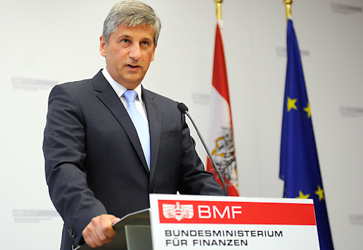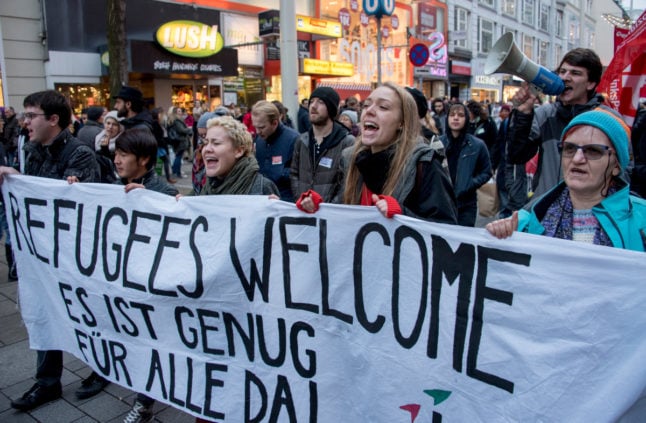Spindelegger also stepped down as Austria's vice chancellor and head of the ÖVP, the junior partner in Austria’s governing coalition.
At a surprise news conference, Spindelegger said he resigned due to a lack of support from his own party. "When there is no cohesion, it is time to hand over the reins," he told reporters.
Some ÖVP members have backed calls for tax cuts from its coalition partner, the centre-left Social Democrats.
Instead of cutting taxes, Austria should focus on cutting its debt, which is expected to reach about 80% of gross domestic product this year, Spindelegger said.
"The Austrian way must be oriented toward Berlin and not toward Athens," he said.
However, Gerald John of Der Standard newspaper writes that what Spindelegger didn’t understand is that no one wants to hear about the looming menace of national debt, and the need for savings and belt-tightening – what they want to hear is when their income tax is going to be reduced.
Tax reform was Spindelegger's stumbling block, and the issue that made him so unpopular, writes John.
For many within the coalition a tax cut is seen as a way to woo voters and ensure success in the next elections (2018), as well as a way to boost the economy by giving workers more spending power.
But Spindelegger always maintained that this was the wrong approach.
"New debts are irresponsible towards the next generation, and I don’t want to be a part of that," he said in his parting words.
The Social Democrats want to introduce taxes on inheritance and a "millionaires tax" on the super rich – an idea Spindelegger rejected as a "drop in the ocean".
He had been a target of criticism from within his own party even before the debate over taxes. He has been a "dead man walking for many months," said political commentator Peter Plaikner.
Voters expect politicians to solve problems, not to give constant warnings that everything is going down the drain. A senior ÖVP figure referred to Spindelegger as a “Cassandra” – but only time will tell if he was actually the voice of reason.
Spindelegger was criticized for his inability to assert his policies and for some of his cabinet choices when building the government. He was viewed by some as too conservative even for the centre-right ÖVP.
With his wife, Margit. Photo: APA/Hochmuth
Many politicians from both sides of the government were surprised by Spindelegger's resignation, but seemed certain that the coalition would be able to overcome the loss of one of its party's leaders.
The day after his resignation Spindelegger had an “impromptu interview” with a sports editor in the changing room of a well-known Vienna fitness club. The 54-year-old was described as “looking 15 years younger” and “beaming”.
"It's also about having some dignity in life, I feel wonderful," Spindelegger said. His immediate plan was to clear his office and fly to Luxembourg, where his wife works – and after that – no long term plans as yet.
Good luck to his successor as ÖVP chairman, Reinhold Mitterlehner. Germany's Süddeutsche Zeitung commented that whoever takes over the ÖVP “is on a suicide mission and will die a quick political death.”
Editor's Note: The Local's Austrian of the Week is someone in the news who – for good or ill – has revealed something interesting about the country. Being selected as Austrian of the Week is not necessarily an endorsement.



 Please whitelist us to continue reading.
Please whitelist us to continue reading.
Member comments